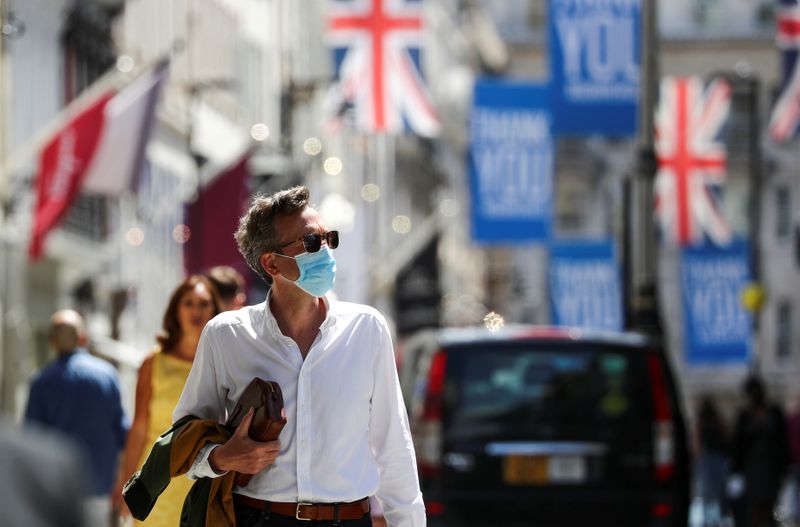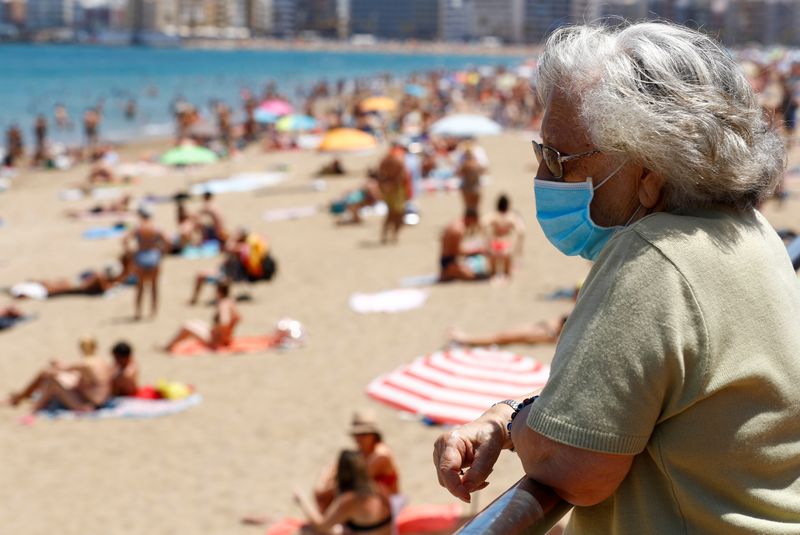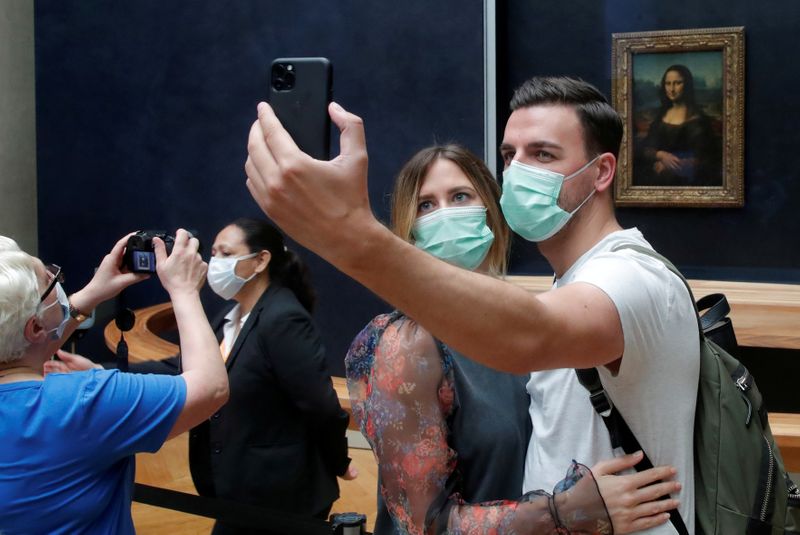(Reuters) – People in England will be required by law to wear a face covering in shops and supermarkets from Friday, extending a rule already applied to public transport.
As European governments seek to open their economies after months of lockdowns, national authorities broadly acknowledge that masks or other face coverings can help limit the spread of the coronavirus.
Here is an overview of regulations in place in the region’s largest economies:
GERMANY – The rules are set state by state, but coverings are mandatory in shops and public transportation nationwide. In some states there are fines for not wearing them, in others not.
FRANCE – Mask-wearing is now compulsory in all enclosed spaces after a resurgence of cases. Some towns with lots of tourists have also opted to make masks mandatory in the busiest areas outdoors.
ITALY – Masks are always mandatory in closed public spaces, including on public transport, and whenever it is impossible to maintain social distancing outdoors. Regions can impose stricter rules if necessary.
NETHERLANDS – Masks are mandatory on public transportation including at airports, and are not required otherwise.
SPAIN – Masks are mandatory everywhere outside the home in Spain except – for now – in Madrid and the Canary islands. In those two regions, masks are not compulsory if you are outdoors and can keep a 1.5-metre distance from others.
POLAND -People must wear masks in public indoor spaces if they are unable to maintain a distance of at least 2 metres from others.
GREECE – Mask-wearing is mandatory on public transport, for frontline workers, and for anyone visiting a supermarket. In Cyprus frontline workers have to wear a mask.
SWEDEN – Face masks remain a rare sight. There are no rules or recommendations regarding face masks with the public health agency favouring social distancing and saying studies are inconclusive regarding their benefits.
(Compiled by Mark John; Editing by Alison Williams)






















